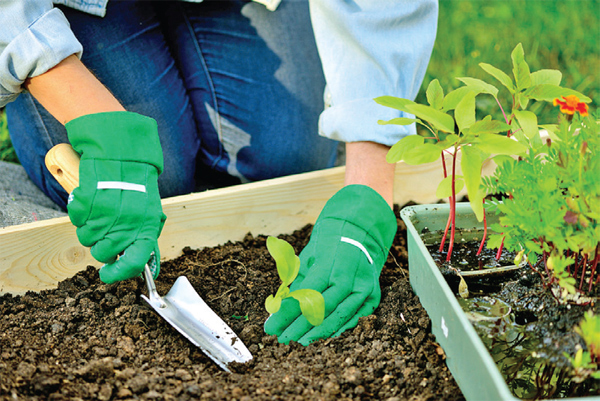Organic Tomato Gardening Made Simple
Tomato gardening involves balancing the health of the environment and the plant itself. Organic gardening causes tomatoes to grow larger, rounder, redder, and fresher than previous cultivation methods. Planting tomatoes organically necessitates the use of very healthy soil rich in fungi, bacteria, and other organisms that are beneficial to tomato plants. Gardening organic tomatoes can be very simple, but requires extra care and attention. Composting is essential in tomato gardens, just as it is in any other organic gardening. If you notice Tomato homworms in your garden, begin pest control as soon as possible.
I'm sure you've seen organic vegetables for sale in supermarkets. Nowadays, the section of supermarkets dedicated to organic produce is expanding. People used to go organic as a form of alternative, lifestyle change, or to make a statement. However, organic food has increasingly become the norm rather than the exception. Organic gardening benefits commercial agricultural products such as fruits and vegetables more than ever before. Organic gardening, for example, is causing tomatoes to grow larger, rounder, redder, and fresher than previous cultivation methods. Organic tomato gardening is not a mystery; rather, it involves balancing the health of the environment and the plant itself.
When growing tomatoes organically, it is important to remember that healthy tomato plants repel pests and diseases better. There are several ways to ensure that your tomato plants are healthy. For starters, you could start by purchasing disease-free plants or seeds. Local varieties typically have evolved an adaptive mechanism that protects them from common pests and diseases.
Tomatoes are classified as determinates or indeterminates. The first variety will grow to a certain point before stopping. Unlike indeterminates, where the tomato vines continue to grow, you must provide support for the plants when cultivating these types of varieties.
Planting tomatoes organically necessitates the use of very healthy soil. It is important to note that healthy soils are rich in fungi, bacteria, and other organisms that are beneficial to tomato plants. You must understand that ordinary backyard or front yard soils are frequently insufficient to provide tomato plants with the nutrients they require. Good quality soil is essential for growing great tomatoes.
This is why some people are tempted to supplement the poor quality of their current soils with chemical fertilizers, pesticides, or herbicides. While chemical fertilizers provide quick results, they are not the true way of organic gardening.
Composting is essential in tomato gardens, just as it is in any other organic gardening. Composting will improve the soil's health and provide a better source of nutrients for your tomato plants.
Pests are common occurrences, and one of the most common and damaging in your tomato garden is tomato hornworms. These are large caterpillars that are mostly found in North America. When left to their own devices, they can cause significant damage not only to tomatoes but also to eggplants, peppers, tobacco, and potatoes.
If you notice Tomato homworms in your garden, begin pest control as soon as possible. The most basic, and still one of the most effective, method of pest control is to get down and handpick caterpillars from the plant's leaves or stem.
Another option is to introduce natural predators into your garden, and in the case of tomato homworms, lady beetles or lacewings are effective friendly insects. These insects will attach to the homworm eggs, killing them at the source.
Gardening organic tomatoes can be very simple; all you need is a simple guide, such as a sample pamphlet or brochure. Just keep in mind that organic gardening will necessitate extra care and attention.


















0 komentar:
Posting Komentar